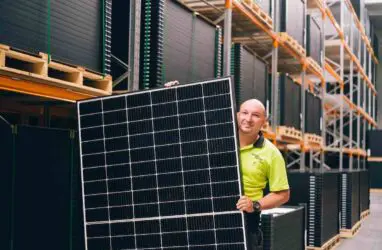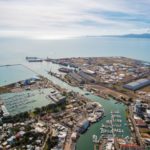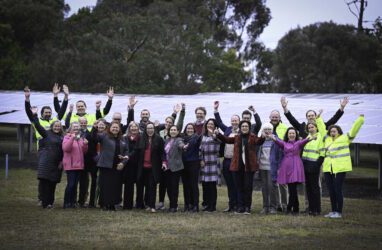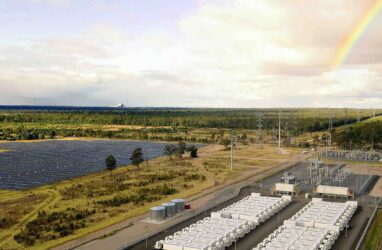Feed aggregator
Large economies face significantly different challenges to decarbonising steel -report
Campaigners sue EU over ‘grossly inadequate’ 2030 climate targets
Groups challenging emissions limits in key sectors including agriculture, waste and transport
The EU is being sued for failing to set ambitious climate targets in sectors that contribute more than half of the bloc’s total greenhouse gas emissions.
Climate Action Network (CAN) Europe and the Global Legal Action Network (GLAN) argue that climate targets laid out for agriculture, waste, transport and small industry in the 27 EU member states until the end of the decade are not based on the best science and are therefore “grossly inadequate”.
Continue reading...‘Holy grail’ ghost orchid rediscovered in UK for the first time since 2009
Location of recently found sample of Britain’s rarest plant kept secret to protect it from enthusiasts and poachers
Britain’s rarest plant, a “holy grail” orchid, has been rediscovered for the first time since 2009, and scientists are now working to protect it from slugs, deer – and poachers.
The ghost orchid was discovered earlier this month by Richard Bate, a dental surgeon, orchid lover and member of the Botanical Society of Britain and Ireland (BSBI).
Herefordshire and Shropshire: Found flowering in only five years between 1854 and 1910, followed by a 72-year gap until 1982, and then a 27-year gap until the last sighting in 2009.
Oxfordshire: Discovered by a schoolgirl in 1924, the ghost orchid was found flowering in about a dozen years between 1924 and 1979.
Buckinghamshire: First found in 1953, the ghost orchid was recorded in bloom in 25 of the years between 1953 and 1987.
Continue reading...UK at risk of missing 30×30 target, study says
So Starbucks’ CEO commutes to work by private jet? Let’s not pretend the super-rich care about the planet | Arwa Mahdawi
It’s paper straws and compostable cups for the masses, space travel and $600m weddings for their overlords. No wonder everyone who can afford it wants a doomsday bunker
Jesus, if I remember correctly, usually travelled by donkey or by foot. Today’s corporate saviours, however, have more elevated tastes. Last week Starbucks made headlines after it was revealed its new CEO, Brian Niccol – who has been described as the “messiah” the ailing coffee company had been searching for – will be commuting to the office via private jet. Niccol, you see, is generously going to abide by the company’s policy of being in the office three days a week. But since he lives in California and the Starbucks HQ is more than 1,000 miles away in Seattle, a corporate jet is really the only way to go.
Did anyone at Starbucks sit down with a cup of coffee and ponder the optics of this before sealing the deal? Because the optics are terrible. Back in 2018 the company made a lot of noise about how it was getting rid of plastic straws and working towards a recyclable and compostable “cup solution”. What’s the point of that posturing if you’re then going to stick your CEO on an emission-spewing private jet a couple of times a week? As environmental groups and plenty of angry people on the internet have pointed out, this supercommute makes a mockery of Starbucks’ supposed “green agenda”.
Continue reading...South Korea to provide preferential loans for low-carbon investments
Academics propose coordinating nature positive research for businesses
Japanese shipping heavyweights to conduct liquefied CO2 study for CCS value chain
NZ govt-industry partnership tips NZ$4 mln into livestock methane emissions reduction tech
BHP to avoid carbon credits to meet medium-term emissions targets
Tindo taps local aluminium maker to frame its Australian made solar panels
The post Tindo taps local aluminium maker to frame its Australian made solar panels appeared first on RenewEconomy.
Fish on Prozac: chemical residues in wastewater mess with bodies, behaviour and sperm
Two regional cities may be key to unlocking Australian renewable and green export future
The post Two regional cities may be key to unlocking Australian renewable and green export future appeared first on RenewEconomy.
Prozac in waterways is changing how fish behave, research finds
Australian study of guppies shows that pharmaceutical pollution could threaten species’ long-term survival
Contamination of waterways with the antidepressant Prozac is disrupting fish bodies and behaviours in ways that could threaten their long-term survival, new research has found.
As global consumption of pharmaceuticals has increased, residues have entered rivers and streams via wastewater raising concerns about the effects on ecosystems and wildlife.
Continue reading...UN chief: there is no way to keep 1.5C alive without a fossil fuels phase-out – video
Speaking during the Pacific Islands Forum in Tonga, the United Nations secretary general, Antonio Guterres, said fossil fuels must be phased out and all G20 countries must pursue a 'drastic reduction of emissions'. Asked whether he believes it is acceptable for a country like Australia to be continuing to approve new coal and gas projects, Guterres said the 'situation of different countries is different' but there should be no 'illusion'. 'Without a phase-out of fossil fuels in a fair and just way, there is no way we can keep the 1.5 degrees alive,' Guterres said in a reference to the Paris climate agreement goal of holding temperature rise to 1.5C above pre-industrial levels
Continue reading...Water utility completes switch to 100 per cent renewables
The post Water utility completes switch to 100 per cent renewables appeared first on RenewEconomy.
WA fossil gas problem has a raft of solutions. Boosting its supply should not be one of them
The post WA fossil gas problem has a raft of solutions. Boosting its supply should not be one of them appeared first on RenewEconomy.
Big battery market charges beyond expectations, now the grid just needs more wind and solar
The post Big battery market charges beyond expectations, now the grid just needs more wind and solar appeared first on RenewEconomy.
Does Australia face a gas shortage? No – just Victoria, where empty wells meet a lack of planning
Crocodile culling an ineffective and expensive way to reduce attacks, Northern Territory study finds
Education campaigns to change human behaviour and relocation of problem reptiles are better ways of managing risk, researchers say
- Follow our Australia news live blog for latest updates
- Get our breaking news email, free app or daily news podcast
Culling crocodiles is an ineffective and expensive way to reduce attacks on humans, new research has found.
Research published in the journal People and Nature found 91% of crocodile attack victims in the Northern Territory were locals, with human complacency and water-based activities contributing factors.
Sign up for Guardian Australia’s breaking news email
Continue reading...







